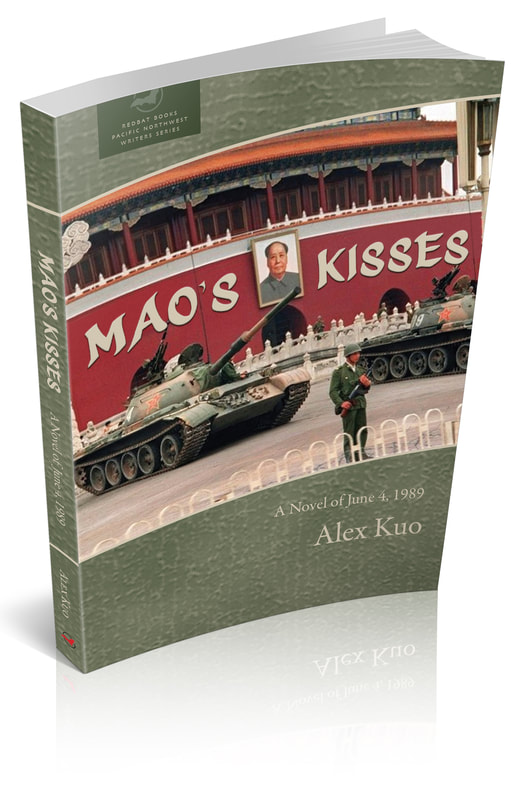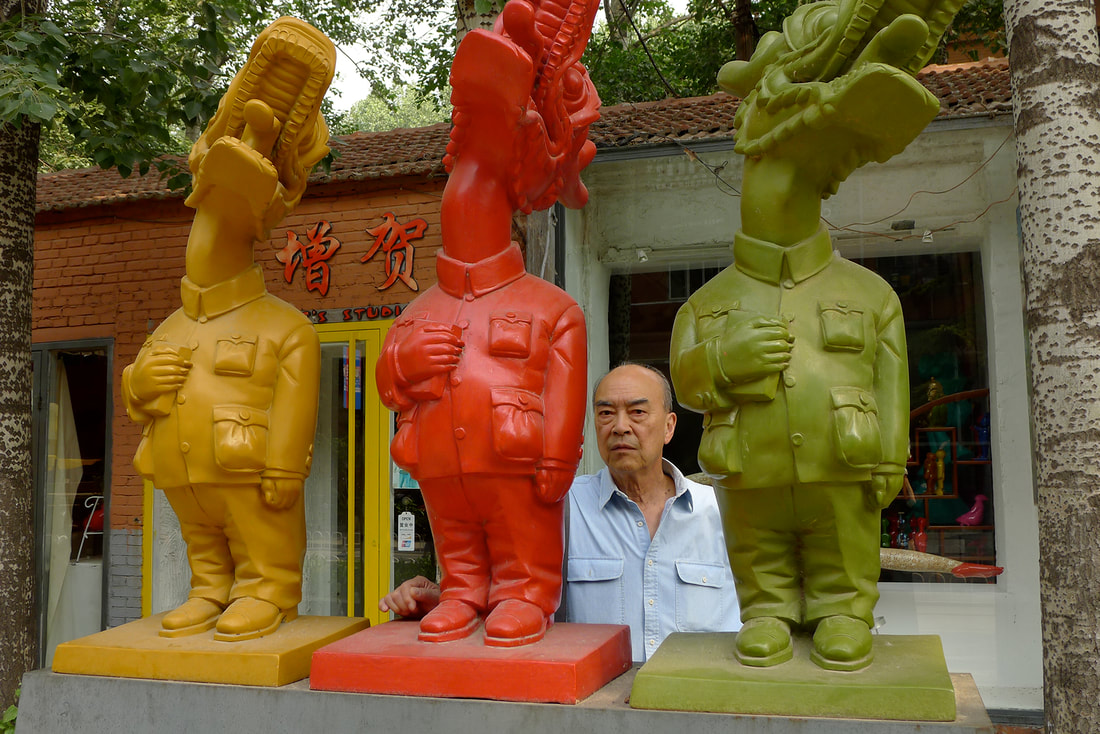“Absolutely a must-read for our global times.”
—Xu Xi,
novelist, editor, essayist,
Hong Kong Rose, Habit of a Foreign Sky, City Voices
—Xu Xi,
novelist, editor, essayist,
Hong Kong Rose, Habit of a Foreign Sky, City Voices
|
Among the shelves of books that have been published on Beijing’s 1989 Tiananmen Square incident—in Chinese and English, inside and outside
China--Mao’s Kisses: A Novel of June 4, 1989 is the first novel. Mao’s Kisses is told from the point of view of Ge, the personal notetaker of China’s paramount leader at the time, Deng Xiaoping, as well as his main bridge partner. It tracks the events in April and May that led first to the declaration of martial law to quell the turmoil, then to the fatal decision to order the People’s Liberation Army to use their Type 68 assault rifles loaded with hollow point bullets against its own students and citizens demonstrating for political reform, and finally to send its Type 59 MBT tanks into Tiananmen (Gate of Heavenly Peace) Square on Sunday, June 4. Staying astonishingly close to historical accuracy, Ge’s narrative chronicles the competing ideologies, betrayals, incompetence and flip-flops among and between the inchoate students and senior Party comrades in another muddled episode of China’s history. Early Praise for Mao's Kisses
”Midway through the novel Mao’s Kisses, Ge (or G), personal notetaker for Deng Xiaoping and letter writer for migrant workers, asks himself during the events leading up to the Tiananmen Square political storm, What is the real China? Here is the central question, examined over and over again, in Alex Kuo’s daring fiction collection comprising the novel and other related stories of China. Here is an important new work, revisiting the China that led to the student uprising in 1989, and poses the larger question of what China will become as the balance of power in the world totters and shifts. As always, Kuo manages to sneak his way through history, this time via qiàopài (bridge) tournaments that Ge competes in as Deng’s partner. The narrative becomes a contemplation of yet another turbulent Chinese moment, one best expressed by a line in the poem Ge pens, But I feel as if I’m walking in circles. Ge’s story is fascinating, this fictional witness to the grand moments of Chinese history, one who records, verbatim, all the meetings he is privileged to attend. This dark comedy is both history lesson and an unpacking of modern China through the “fragility of words on words,” this country kissed by Mao to awaken for its rise in the 21st Century. Absolutely a must-read for our global times.”
—Xu Xi, novelist, editor, essayist,
Hong Kong Rose, Habit of a Foreign Sky, City Voices |
Other Books by Alex Kuo:
The Window Tree (1971, poetry)
New Letters from Hiroshima (1974, poetry)
Changing the River (1986, poetry)
Chinese Opera (1998, novel)
This Fierce Geography (1999, poetry)
Lipstick and Other Stories (2001, fiction)
Panda Diaries (2006, novel)
White Jade and Other Stories (2008, fiction)
A Chinaman’s Chance (2011, poetry)
The Man who Dammed the Yangtze (2011, novel)
My Private China (2013, non-fiction)
shanghai.shanghai.shanghai (2015, novel (four editions))
Meeting Words at the Gate (2015, poetry (bi-lingual))
New Letters from Hiroshima (1974, poetry)
Changing the River (1986, poetry)
Chinese Opera (1998, novel)
This Fierce Geography (1999, poetry)
Lipstick and Other Stories (2001, fiction)
Panda Diaries (2006, novel)
White Jade and Other Stories (2008, fiction)
A Chinaman’s Chance (2011, poetry)
The Man who Dammed the Yangtze (2011, novel)
My Private China (2013, non-fiction)
shanghai.shanghai.shanghai (2015, novel (four editions))
Meeting Words at the Gate (2015, poetry (bi-lingual))
About the AuthorBorn in Boston and educated in the United States, Alex Kuo lived his early childhood in the French Concession of occupied Shanghai for most of World War II.
Since 1963, he has taught and directed programs and departments at several American universities, including Roger Williams, University of Colorado and Washington State, and has been appointed writer-in-residence at Knox College, Washington State and Mercy Corps. He taught American literature in Beijing in its political spring of 1989, and has returned to it almost every year since, lecturing at Peking, Tsinghua, Beijing Foreign Studies, Beijing Forestry, Beiihang, Fudan, Jilin and Hong Kong Baptist Universities. He has received a Rockefeller Bellagio residency, three National Endowment for the Arts fellowships, a Fulbright Scholar appointment, a Lingnan Professorship, Knox College Distinguished Alumni Award, and the American Book Award for his short fiction collection, Lipstick and Other Stories. |



